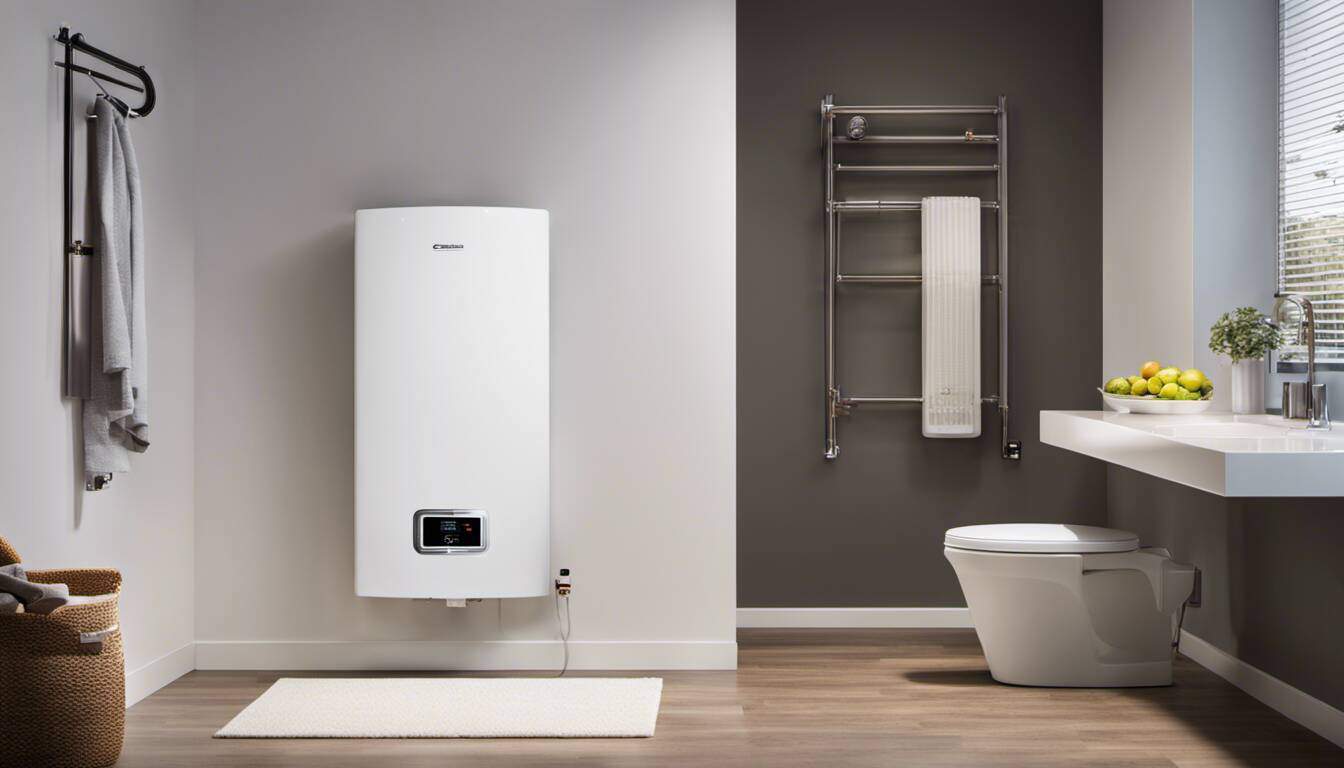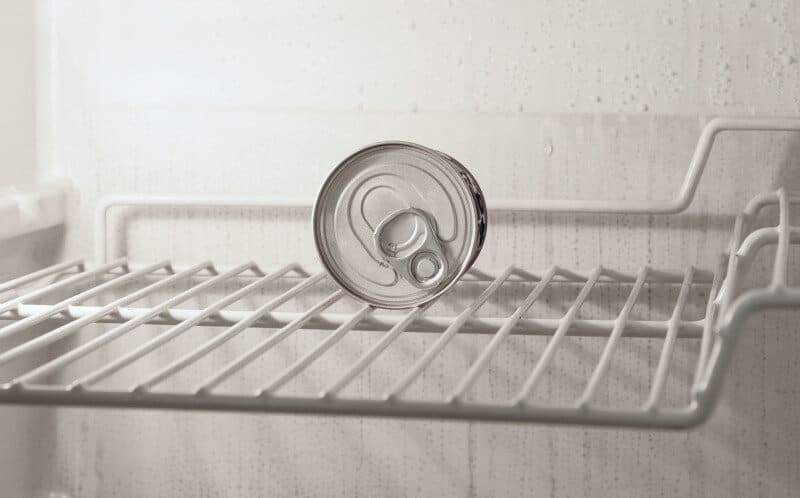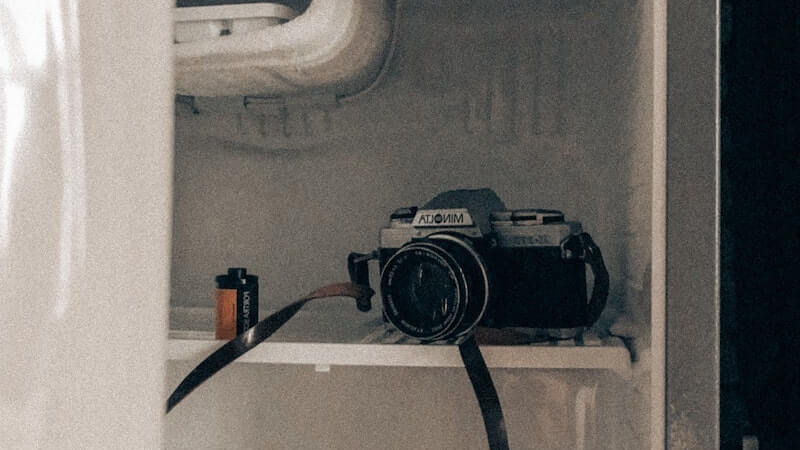Are you tired of the endless wait for hot water or sudden temperature changes during your shower? Are skyrocketing utility bills wreaking havoc on your finances? Then it’s time to revolutionize your home with a tankless water heater. These contemporary systems are renowned for their efficiency and economical use of energy, presenting a practical solution to these problems. In fact, many homeowners are now considering whole house generators alongside tankless water heaters for comprehensive home energy solutions. In this blog post, we’ll take an in-depth look at the cost of installing a tankless water heater, the significant savings you can expect, as well as their energy-efficient features that make them worth every cent. Get ready to transform your home while saving money and preserving our environment! Speaking of home transformations, have you considered how heated floors work to enhance comfort and energy efficiency!
The cost of installing a tankless water heater can vary depending on several factors, such as the system type, fuel type, flow rate, system size, brand choice, and additional costs for materials, permits, accessibility, ventilation, and insulation. According to our research, the typical range of tankless water heater costs is between $1,171 and $3,331. Labor costs usually average between $100 and $450 and may include plumbing fees ranging from $45 to $150 per hour. It is important to consult with a professional plumber to determine the most accurate estimate for your specific installation needs. While a tankless water heater may be more expensive to install initially, it can offer long-term savings compared to traditional tank-style water heaters due to its efficient heating method that produces an endless supply of hot water. This efficiency is comparable to other energy-saving home improvements, such as radiant floor heating, which can also provide long-lasting benefits heater may be more expensive to install initially, it can offer long-term savings compared to traditional tank-style water heaters due to its efficient heating method that produces an endless supply of hot water.
“Through my years of practice in energy consulting, I have seen a significant shift towards tankless water heaters. The upfront costs can be offset by long-term energy savings and lowered maintenance costs. Meticulous installation plays a significant role in this efficiency, so it’s vital to involve qualified professionals. Trust me, I have been helping people optimize their heating systems for over 20 years, and the savings from these systems are substantial! Many homeowners also ask me, ‘Are heated floors energy efficient?‘ The answer is often yes, and they can complement tankless water heaters nicely in an energy-efficient home!”
Reuben Kincade, Energy Efficiency Consultant
Installation Cost of Tankless Water Heaters
One of the first considerations when investing in a tankless water heater is the installation cost. While the upfront costs may be higher compared to traditional water heaters, the long-term benefits often outweigh this initial expense. Various factors influence the installation cost, including the type of system, power source used, and any additional plumbing or electrical work required.
For electric tankless water heaters, you can expect prices ranging from $500 to $800. On the other hand, gas tankless water heaters typically cost between $750 and $2,300 . It’s important to note that these are just general price ranges and actual costs can vary depending on several factors such as brand, capacity, and energy efficiency ratings.
Let’s consider an example to better understand how installation costs can vary. Suppose you decide to go with an electric tankless water heater that falls within the mid-range price at around $650. You’ll also need to budget for installation fees which typically range from $500 to $3,000 depending on the complexity of the installation process . Keep in mind that additional plumbing work or electrical upgrades may also incur extra charges.
The installation process itself may involve modifying existing plumbing lines or electrical circuits to accommodate the new tankless system. Retrofitting a tankless water heater into an older home might require more extensive modifications compared to newer constructions.
Now that we have explored the installation costs associated with tankless water heaters, let’s dive into different types of tankless water heaters available in the market along with their respective prices.
- Investing in a tankless water heater involves considering the installation cost which can vary depending on factors such as the type of system, power source used, and any additional plumbing or electrical work required. Though upfront costs may be higher compared to traditional water heaters, long-term benefits often outweigh this expense. Prices for electric tankless water heaters range from $500 to $800 while gas tankless water heaters typically cost between $750 and $2,300. It’s important to note that actual costs can vary depending on brand, capacity, and energy efficiency ratings. The installation process itself may involve modifying existing plumbing lines or electrical circuits to accommodate the new tankless system and retrofitting an older home might require more extensive modifications compared to newer constructions.
Types of Tankless Water Heaters and Their Prices
Tankless water heaters come in various types catering to different needs and budgets. Understanding these options will help you make an informed decision when selecting a unit that aligns with your requirements.
Choosing a tankless water heater is akin to selecting a car – considering factors like size, power, and fuel efficiency. You wouldn’t buy a compact car if you had a large family, just as you wouldn’t invest in an undersized tankless water heater for a high-demand household.
There are two main types of tankless water heaters: single point and whole-house.
Single-point tankless water heaters typically come in packs of three and are designed to supply hot water to specific points of use such as sinks or showers. Each unit costs between $145 and $250 at big box retailers . These systems are ideal for smaller spaces or when you only need hot water at a few specific locations.
On the other hand, whole-house tankless water heaters are capable of supplying hot water to multiple fixtures simultaneously throughout the entire house. The cost for whole-house tankless water heaters varies based on the power source used. Electric models can range from $200 to $2,300, while gas-powered units generally fall within the same price range but can be slightly more expensive .
For instance, an electric whole-house tankless water heater might cost around $900, while the gas-powered alternative could be priced at approximately $1,500. Factors such as BTU output, gallons per minute (GPM) flow rate needed for your home, and temperature rise required in your area all influence the type of tankless water heater and its corresponding price. Similarly, when considering a generator for your house, these factors also play a crucial role in determining the right size and type for your needs.
- As per 2023 figures, the average investment for a tankless water heater in the United States falls around $2,216, with the price range typically between $1,171 and $3,331.
- Labor or installation costs for these water heaters can vary from $100 to $450 depending largely on geographical location and plumber fees.
- Single-point systems come with a cost between $100 to $300 each, while whole-house systems tend to be more expensive ranging from $450 up to $1,500.
Labor and Additional Installation Costs
When considering the cost of installing a tankless water heater, it’s important to take into account labor and additional installation costs. While the initial investment in a tankless water heater may be higher compared to a traditional water heater, the long-term benefits often outweigh the upfront expenses.
The labor costs for installing a tankless water heater can vary depending on factors such as the complexity of the installation, local labor rates, and any modifications required in your home’s plumbing and electrical systems. It is recommended to hire a professional plumber or contractor who specializes in tankless water heater installations to ensure a proper and efficient setup. Their expertise will help avoid potential issues and ensure that the installation is done correctly.
In addition to labor costs, there may be additional expenses associated with the installation process. These can include any necessary permits or inspections required by local building codes, as well as any modifications needed to accommodate the new system. For example, if you are replacing a traditional water heater with a tankless unit, you may need to adjust the venting or gas line requirements. It’s crucial to factor in these potential costs when budgeting for your tankless water heater installation.
Let’s consider an example: Mark decides to upgrade his home’s water heating system and opts for a tankless water heater. After researching various options and consulting with a professional plumber, he learns that his current gas line needs to be replaced to accommodate the new unit. This unforeseen expense adds an extra $500 to his overall installation cost but ensures proper functionality and safety.
Remember, investing in professional installation services is worth it in the long run, as it ensures optimal performance and longevity of your tankless water heater. Now let’s move on to comparing the costs of tankless water heaters versus traditional ones.
Comparing Costs: Tankless Vs. Traditional Water Heaters
When evaluating the cost of tankless water heaters compared to traditional ones, it’s essential to consider not only the initial purchase price but also the long-term savings and energy efficiency benefits.
Think of it like choosing between a high-quality, energy-efficient car versus an older model with lower fuel efficiency. While the upfront cost may be higher for the former, the long-term savings on gas expenses and improved performance make it a worthwhile investment.
Traditional tank water heaters have a lower upfront cost compared to tankless options. The average price range for a tank water heater can vary depending on the size, ranging from $820 for a 30-gallon unit up to $3,200 for an 80-gallon unit. However, traditional tank water heaters typically have lower energy efficiency ratings (around 58%-60%) and a shorter lifespan of around 8-12 years. This results in potentially higher monthly operational expenses and more frequent replacements over time.
On the other hand, while tankless water heaters might have a higher initial purchase price (starting at $1,200), they offer significant energy efficiency advantages with ratings as high as 92%-94%. With on-demand heating capabilities, tankless units heat water only when needed, eliminating standby heat loss. This can result in substantial savings on energy bills over time. Additionally, tankless water heaters generally have a longer lifespan of 15-20 years, reducing the need for frequent replacements.
To further illustrate the cost comparison, consider this table showcasing average installation costs and annual costs for different types of water heaters:
Water Heater Type |
Average Installation Cost |
Average Annual Cost |
Lifespan |
|---|---|---|---|
Traditional Tank |
$820 – $3,200 |
Higher |
8-12 years |
Tankless |
Starting at $1,200 |
Lower |
15-20 years |
While the initial investment in a tankless water heater may be higher, the long-term energy savings and extended lifespan often make it a more cost-effective choice. However, it’s important to consider other factors such as your household’s hot water demands and available budget when making your decision.
Energy Efficiency and Savings
Tankless water heaters have gained popularity due to their energy-efficient operation, which can lead to significant savings in the long run. Unlike traditional storage tank water heaters that constantly heat and reheat water, tankless models only heat water when it’s needed. This on-demand heating process eliminates standby heat loss, where energy is wasted by keeping a large tank of water hot at all times.
By using a tankless water heater, you can potentially reduce your energy consumption by 30% or more compared to conventional storage tank models. This translates into lower utility bills and a smaller carbon footprint, making tankless water heaters an environmentally friendly choice.
But the energy savings don’t stop there. Tankless water heaters also have a longer lifespan compared to traditional units. While storage tank heaters typically last 10-15 years, tankless models can last up to 20 years or more with proper maintenance. The extended lifespan helps offset the initial investment of purchasing a tankless heater.
Let’s say you’re considering replacing your outdated storage tank heater with a new tankless model. While the upfront cost of the tankless unit might be higher, let’s assume it’s $1,000 more than a comparable storage tank unit. However, over the span of 20 years, the energy savings from using the tankless heater could amount to $5,000 or more in reduced utility bills. This means that even with the initial price difference, you’ll end up saving money in the long term.
Now that we understand the potential energy efficiency and cost savings associated with tankless water heaters, let’s explore another crucial aspect: maintenance costs.
Maintenance Costs of Tankless Water Heaters
Just like any other household appliance, tankless water heaters require regular upkeep and occasional repairs to ensure optimal performance and longevity. It’s important to consider these maintenance costs before committing to a tankless water heater.
Regular maintenance tasks include flushing the unit to remove mineral deposits and scale buildup, inspecting and cleaning the burners, checking for gas leaks (if applicable), and testing the pressure relief valve. While some homeowners may choose to handle these tasks themselves, it’s recommended to hire a professional plumber or HVAC technician for proper maintenance.
Here’s an estimated breakdown of common maintenance costs for tankless water heaters:
Maintenance Task |
Cost Range |
|---|---|
Flushing and descaling |
$50 – $200 |
Professional inspection |
$100 – $300 |
It’s worth noting that neglecting regular maintenance can lead to more significant issues down the line, potentially resulting in costly repairs or premature unit failure. Therefore, budgeting for routine maintenance is essential to prevent avoidable expenses in the future.
Think of it as changing the oil in your car regularly; without proper maintenance, the engine could suffer damage and require expensive repairs.
In addition to routine upkeep, there might be occasions when your tankless water heater requires repairs. Common repairs include fuse replacement, thermostat replacement, heating element replacement, and pressure relief valve repair. The cost of these repairs can range from relatively minor expenses like fuse replacement ($20) to more significant repairs like thermostat replacement ($200) or pressure relief valve repair ($75 – $150).
It’s important to note that different factors can influence maintenance costs for tankless water heaters, including location and fuel type used by the unit. Let’s delve into these factors next.
Regular Upkeep and Potential Repairs
One of the major advantages of tankless water heaters is the ease of maintenance compared to traditional tank-style heaters. While regular upkeep is still necessary to ensure optimal performance, it is generally less time-consuming and costly. So, what does regular upkeep for tankless water heaters entail?
First and foremost, annual maintenance is recommended to keep the unit in good condition. This typically involves flushing the system to remove any mineral or sediment buildup that may affect its efficiency. Although the frequency of flushing may vary depending on water chemistry, it’s important to check with your manufacturer’s guidelines or consult a professional for specific recommendations.
Descaling abilities are another feature to consider when choosing a tankless water heater, especially if you reside in an area with hard water. Hard water contains high mineral content, which can lead to significant scaling inside the heat exchanger. Investing in a unit with built-in descaling capabilities or incorporating a descaling system can help prevent scaling issues and prolong the lifespan of your tankless water heater.
Additionally, it’s crucial to keep an eye out for any potential repairs that may arise. While tankless water heaters are known for their durability and longevity, like any other appliance, they can experience malfunctions or breakdowns over time. Common issues include electronic component failure, gas supply issues, or problems with the heating element.
For instance, let’s say you notice your tankless water heater isn’t heating water as effectively as before. It could be due to a faulty electronic control board or a gas supply problem. In such cases, it’s best to reach out to a certified technician who specializes in tankless water heater repairs. They will have the expertise and knowledge to diagnose and resolve these issues efficiently.
Remember that performing regular maintenance and addressing potential repairs promptly can help extend the lifespan of your tankless water heater. With proper care and attention, these units can last up to 20 years, considerably longer than the average lifespan of a tank-style water heater.
Now that we understand the importance of regular upkeep and potential repairs for tankless water heaters, let’s explore another crucial aspect – customer feedback on their value.
Customer Feedback on Tankless Water Heater Value
When considering the purchase of a tankless water heater, it’s natural to want reassurance from those who have already made the switch. Examining customer feedback can offer valuable insights into the value and benefits of owning a tankless water heater.
Many customers rave about the energy efficiency provided by tankless water heaters. With these units, hot water is only produced when needed, eliminating standby heat loss common in traditional tanks. This results in substantial energy savings, leading to lower utility bills over time. Customers report significant reductions in their energy consumption and are often pleasantly surprised by the financial savings they experience.
In addition to energy efficiency, customers appreciate the convenience of endless hot water supply. Unlike tank-style heaters that can run out of hot water after several back-to-back showers or large loads of laundry, tankless water heaters provide hot water on-demand. This feature is particularly beneficial for households with high hot water demand or if multiple tasks requiring hot water are performed simultaneously.
Think of it like having access to an endless well of warm comfort – whether you’re enjoying a long, relaxing shower or tackling household chores that require hot water.
Furthermore, tankless water heaters take up significantly less space compared to their bulky tank-style counterparts. This compact design allows for more flexibility in installation locations, making them ideal for small homes, apartments, or even businesses where space is at a premium.
Overall, customer feedback showcases the satisfaction and benefits enjoyed by those who have upgraded to a tankless water heater. From energy efficiency and endless hot water supply to space-saving design, these units continue to receive positive reviews from homeowners.
Personal Experiences and Recommendations
As an avid DIY enthusiast, I recently decided to replace my old tank-style water heater with a tankless water heater. The installation process was relatively straightforward, and I must say, the results have been impressive. Not only do I now have a continuous supply of hot water, but I also have freed up valuable space in my utility room.
Let me share a personal story that highlights the advantages of a tankless water heater. A few months ago, my family hosted several out-of-town guests for an extended stay. With our previous tank-style water heater, we often found ourselves running out of hot water during peak usage times. The inconvenience was not only frustrating but also embarrassing for us as hosts. However, after installing a tankless water heater, we noticed an immediate difference. Regardless of how many showers were taken simultaneously or how many dishes were being washed in the kitchen, there was always a steady flow of hot water available. This upgrade has significantly improved our overall comfort and eliminated any worries about running out of hot water.
Additionally, I discovered that tankless water heaters offer another significant advantage: energy efficiency. By heating water on-demand instead of constantly maintaining a large tank of heated water, these systems can help reduce energy consumption and associated costs over time. While the upfront cost of installation may be higher compared to traditional tank-style heaters, the long-term savings make it a worthwhile investment.
Consider the experience of my friend Sarah, who opted for a tankless water heater due to her eco-conscious lifestyle. She diligently tracked her utility bills before and after the installation, documenting the savings month by month. Over the course of a year, Sarah estimated that she saved approximately 20% on her energy bills compared to her previous tank-style system. These numbers are truly remarkable and demonstrate the potential for substantial long-term savings with a tankless water heater.
Of course, personal experiences and recommendations may vary depending on individual circumstances. It’s important to evaluate your specific needs, budget, and household requirements before making a decision.
Some critics argue that the cost of installing a tankless water heater may not always justify the long-term energy savings, especially for households with low hot water usage or small families. They advocate for exploring alternative options like heat pump water heaters, which can provide energy-efficient operation at a lower upfront cost. While this perspective is valid in certain situations, it’s essential to weigh the pros and cons based on your unique circumstances.
Ultimately, my personal experience and recommendation align with the countless others who have embraced tankless water heaters. The endless supply of hot water, space-saving benefits, longer lifespan, and potential for energy savings make them a smart choice for both financial and practical reasons. However, I encourage you to consult with a qualified plumber or professional who can evaluate your specific needs and guide you towards the right decision for your home.






From my own experience, upgrading to a tankless water heater can be a major money-saver in the long run, particularly when it comes to energy bills, not to mention the convenience it offers.
While I was professionally active, the shift from traditional tank heaters to these models was quite noticeable. Dealing with less maintenance issues and getting better feedback from clients made me an advocate for these systems. Now in retirement, I have one at my own place. The convenience and cost-efficiency it provides is unparalleled, it’s like having a personal hot spring that doesn’t break your bank every month!
I couldn’t agree more with you, Quinlan. The shift to tankless water heating not only saves money but also naturally falls in line with the much-needed move towards sustainable living practices. What I love most is that it’s not just about the economics; it’s about energy conservation too.
In my profession as a hydraulic engineer, I’ve seen consistent improvements in the efficiency of tankless water heaters over the years. My own home is equipped with one, and the reduction in our energy bills has been truly substantial.
Mortimer, as an electrician who’s installed a fair share of these units, I couldn’t agree more about their increasing efficiency. After adding one to my own home, the savings on both energy costs and water usage were notably significant.
I had to chime in here since converting to a tankless water heater was one of the best decisions I’ve made during my home remodel. I think, rather than focusing primarily on the upfront costs, anyone contemplating this move should consider the long-term savings. Once you factor that in, going tankless starts to make more financial sense.